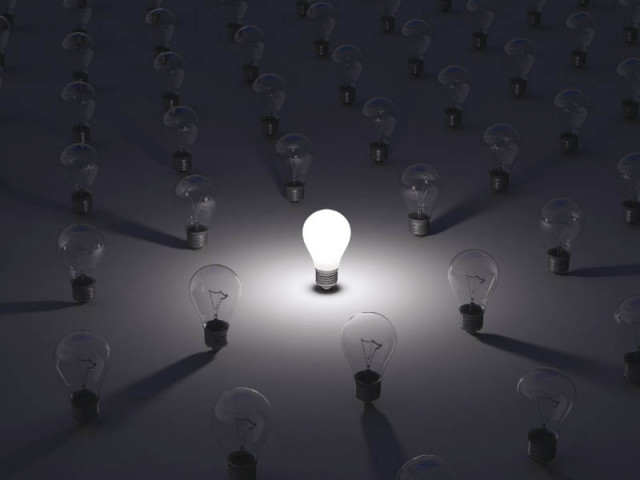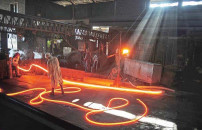Comment: Time to create an ‘energy ministry’
Current distribution of ministerial responsibilities does not suit evolution of nation’s energy needs.

Comment: Time to create an ‘energy ministry’
Pakistan needs an energy ministry.
There are just no two ways of saying it: the current system of having one ministry that deals with water and power and another that deals with oil and gas may have made sense in the 1950s when it was first created, but Pakistan’s energy system has long since outgrown the federal government’s antiquated regulatory structure. It is time for the government to recognise that the country’s energy needs are vastly more complex and create a unified energy ministry to oversee and regulate it.
The current system certainly had its merits when it was created. The Water and Power Development Authority (Wapda) was created in 1958 as an authority that would manage what is still the world’s largest integrated canal-based irrigation system while also managing the hydroelectric power plants that would be set up on the dams that were being built on the mighty rivers that provide the lifeblood of Pakistan’s economy.
Having an integrated regulator (and thus a ministry) for water and electricity made sense when nearly all of Pakistan’s electricity came from hydroelectric power generation. It was an arrangement that remained valid for over three and a half decades. It was not until the 1990s that the country seriously started exploring thermal power as a source of electricity. And it was not until the early part of the 2000s that Pakistan’s generation of thermal power exceeded that of hydroelectric power.
But Pakistan’s fuel mix for electricity has changed rapidly over the past decade. While hydroelectricity is probably still our best bet for cheap electricity in the future, there is no denying that thermal electricity – whether it is produced by burning natural gas, oil or coal – will remain an important part of the country’s electricity mix. Having one ministry that regulates one fuel source and another that regulates the other makes no sense anymore.
The government needs to have an integrated approach that deals our entire energy system. And that means combining the water and power ministry with the petroleum and natural resources ministry. Having two ministers, and two competing bureaucracies, manage a critical element of the nation’s physical infrastructure makes no sense, at least not anymore.
As things stand right now, the petroleum ministry is busy regulating the oil and gas industry – and trying to encourage the nascent coal sector – without regard to whether or not Pakistan really should go for building quite so many thermal power stations. Oil is easily the most expensive fuel available, coal is the dirtiest and natural gas is running out.
Meanwhile, the water and power ministry is busy trying to put out fires in the power sector by ensuring that power plants get the fuel they need to keep the lights on, forcing the finance ministry to spend massively on subsidies and not investing nearly enough in increasing the nation’s capacity to produce cheaper hydroelectricity.
An integrated ministry would stop looking at thermal power and hydroelectric power in isolation and begin to look at the grid as a whole. It would stop trying to manage each segment individually and be in a better position to create a broader strategy for electricity generation that takes into account both cost as well as capacity. It may even find a better use for the Rs450 billion ($4.8 billion) the federal government spent last year on electricity subsidies.
There are other governments that already have such an approach, most notably the United States, which has a unified Department of Energy that is the regulator for virtually the entire power grid of the country. Instead of constantly giving examples of countries like India – where half the country can very suddenly lose power – let us aspire to be more like countries that have managed to keep the lights on for over a century.
Published in The Express Tribune, August 24th, 2012.



















COMMENTS
Comments are moderated and generally will be posted if they are on-topic and not abusive.
For more information, please see our Comments FAQ